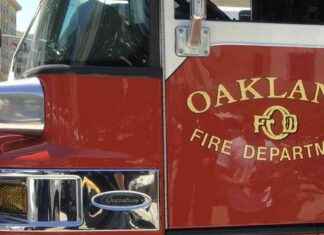The Speaker of the House of Commons of Canada announced his resignation on Tuesday after the scandal caused by the tribute paid in parliament to a Ukrainian veteran who fought with the Nazis during the Second World War, on the occasion of Volodymyr Zelensky’s visit .
“It is with a heavy heart that I rise to inform members of my resignation as Speaker of the House of Commons,” Anthony Rota told parliament, speaking of “his deep regret for his mistake.”
The latter had been under pressure since last weekend since the opposition parties were calling for his resignation – just like the tenors of his own clan, the Liberals of Prime Minister Justin Trudeau. The latter spoke on Monday of an “unacceptable” and “deeply embarrassing” tribute.
During Ukrainian President Volodymyr Zelensky’s visit to Ottawa on Friday, Anthony Rota applauded Yaroslav Hunka, a 98-year-old Ukrainian veteran accused of having fought in the SS, in parliament.
He presented this man as a “Ukrainian hero”, coming from his electoral district. MPs from all parties, Justin Trudeau, his government and Volodymyr Zelensky, of Jewish faith, stood up to applaud Yaroslav Hunka, ignoring the details of his past.
According to the advocacy group for the Jewish community in Canada, the Friends of the Simon Wiesenthal Center (FSWC), Mr. Hunka served in the 14th Waffen Grenadier Division of the SS, a Nazi military unit whose crimes against humanity during the Holocaust are well documented.
“This gesture of public recognition has caused pain to individuals and communities, including the Jewish community in Canada (…) as well as Holocaust survivors in Poland. I accept full responsibility for my actions,” he added.
First elected in 2004 under the Liberal banner, Mr. Rota, 62, has been re-elected five times. He had been Speaker of the House since 2019, a key position in the Canadian parliamentary system, above party lines.
He assumed numerous administrative and diplomatic responsibilities as well as links with the Senate and the Crown, that is to say the representation of King Charles III, titular head of state of Canada.
Anthony Rota apologized for the first time on Sunday for this invitation, explaining “that he was the only one responsible for this initiative”.
But his excuses were not enough in the face of the controversy which threatened to fall on the Canadian Prime Minister.
On Tuesday, many members of the government took to the front: Mélanie Joly, the Minister of Foreign Affairs, estimated that Mr. Rota had no choice and had to resign, speaking of “shame for Canadians”.
For the Conservative Party, the main opposition force in Canada and rising in the polls, the Trudeau government is responsible for not having checked Mr. Hunka’s background before paying tribute to him.
For Friends of the Simon Wiesenthal Center, this incident “compromised the integrity of all 338 members of Parliament and also offered a propaganda victory to Russia.”
Russia in fact accuses the Ukrainian leaders of being “neo-Nazis” and puts forward, as justification for the war, the need to “denazify” its neighbor.
The Canadian episode therefore risks further fueling this rhetoric: the Kremlin spokesperson, Dmitri Peskov, also spoke of a “scandal”, Russian media reported.
Tuesday evening, the Polish Minister of Education announced that he had requested an investigation to verify whether this Ukrainian veteran who fought with the Nazis had not committed crimes in Poland, with a view to his possible extradition.
Canada has the second largest Ukrainian diaspora in the world after Russia with some 1.4 million people of Ukrainian origin on its territory. It was the Ukrainian president’s first official visit to Canadian soil since the start of Russia’s invasion.
09/27/2023 00:41:35 – Montréal (AFP) – © 2023 AFP






